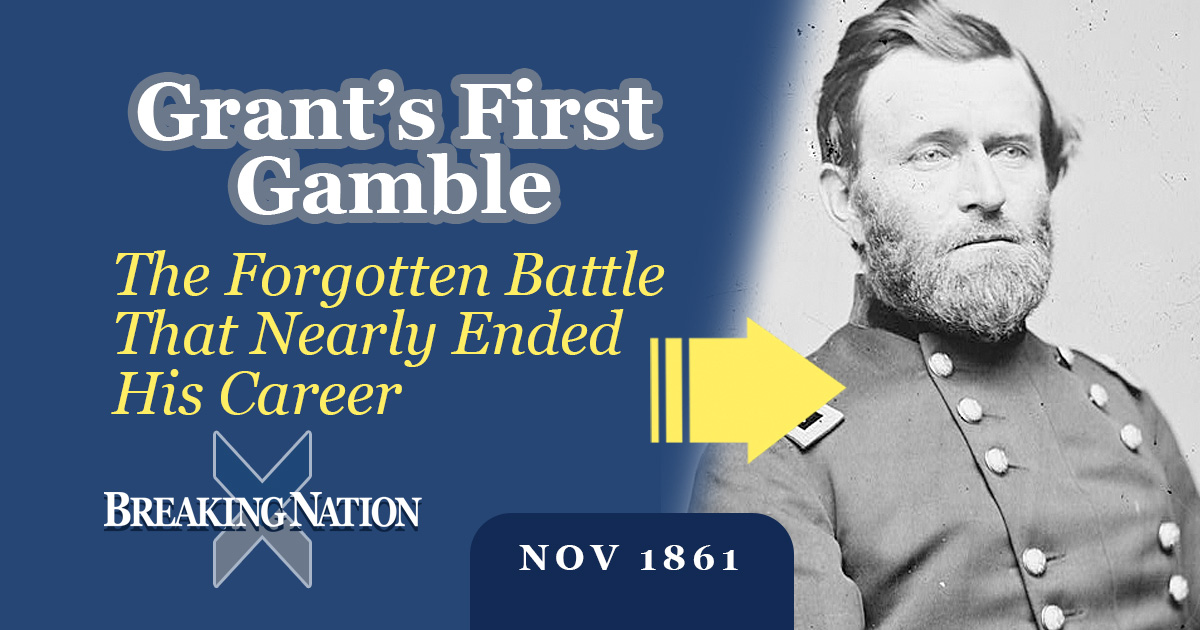Grant's Daring Strike at Belmont: How a Near-Disaster Forged a Commander

The Battle of Belmont, fought on November 7, 1861, in southeastern Missouri, was the first combat test for Brigadier General Ulysses S. Grant and an early glimpse of the qualities that would later define his command style. Though small in scale compared to later clashes, Belmont held real significance as a learning experience for both sides in the Civil War and as a signal of the Union’s determination to challenge Confederate control along the Mississippi River.
Grant’s objective was to strike a Confederate camp opposite Columbus, Kentucky—a stronghold on the Mississippi that anchored the Confederate defensive line in the Western Theater. From his base at Cairo, Illinois, Grant led around 3,000 Union troops downriver by steamboat to attack a smaller Confederate detachment at Belmont, Missouri. The battle opened chaotically, with both armies inexperienced and undisciplined. Grant’s men successfully overran the Confederate position, captured their camp, and briefly celebrated what they believed was a decisive victory. However, that pause proved costly. Confederate reinforcements soon crossed from Columbus under Brigadier General Gideon Pillow, forcing Grant to execute a fighting withdrawal back to his transports under heavy fire.
Although the Confederates claimed victory because Grant retreated, the engagement revealed much about the evolving nature of the war and the men who would fight it. Grant, in particular, demonstrated two defining traits: decisiveness and resilience. He had acted aggressively—something rare among early Union commanders—and when faced with sudden reversal, he kept his composure, organized his retreat, and extracted his army. His calm under pressure impressed his superiors, laying the groundwork for future promotions. Later in his Memoirs, Grant admitted his mistakes at Belmont but also noted the invaluable experience it gave him in managing troops under fire.
Strategically, the battle had limited immediate consequence. Neither side gained lasting control of the area, and Columbus remained a formidable Confederate stronghold until early 1862. Yet the engagement carried psychological and political weight. It reassured Northern observers that the Union army in the West was active and aggressive, and it alarmed Confederate leaders who realized that Federal forces could threaten their river defenses. In hindsight, Belmont was less about territory than about transformation—it was a proving ground for Grant and a small but vital step in the Union’s long campaign to dominate the Mississippi Valley.
Breaking Nation: A Civil War Podcast explores the American Civil War, its turning points, and our national memory. Discover full episodes, transcripts, and resources at www.breakingnation.com — your destination for in-depth Civil War podcast content and fresh perspectives on America’s past. Listen on Apple Podcasts, Spotify and Amazon Music.




